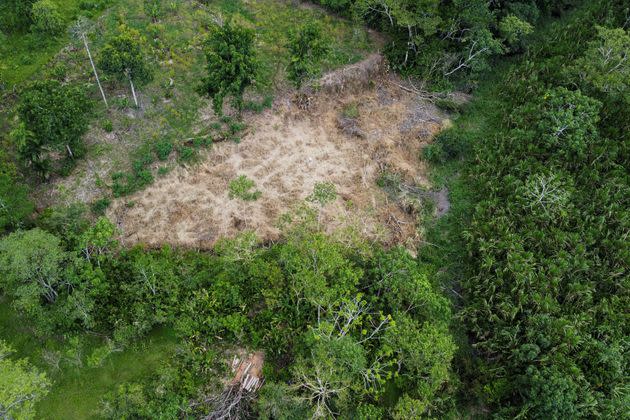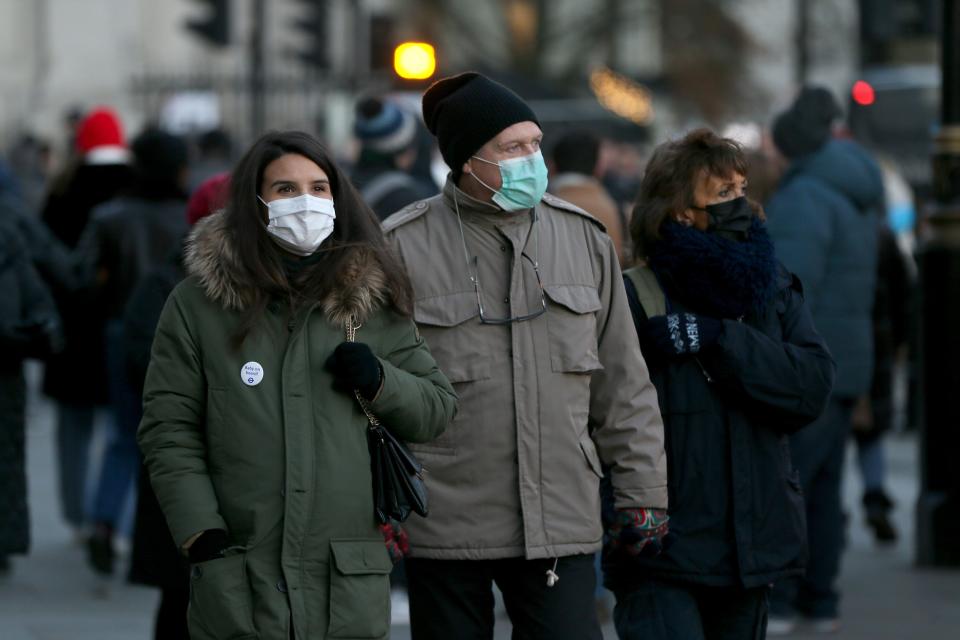Scientists Say Another Pandemic Is Inevitable, Here's Why

The next pandemic is coming and it could be lethal, says one of the scientists who helped develop the AstraZeneca vaccine.
Dame Sarah Gilbert warned during the 44th Richard Dimbelby lecture, that while this “pandemic is not done with us”, following ones could be even more catastrophic.
The professor of vaccinology at Oxford University and her team developed the AstraZeneca jab, which – despite controversies over rare blood clots – has been used in more than 170 countries.
Speaking at the lecture, she said: “This will not be the last time a virus threatens our lives and our livelihoods. The truth is, the next one could be worse. It could be more contagious, or more lethal, or both.”
Professor Gilbert added that we could be more prepared for future catastrophes, if we take on lessons from Covid-19.
She added: “We cannot allow a situation where we have gone through all we have gone through, and then find that the enormous economic losses we have sustained mean that there is still no funding for pandemic preparedness.
“Just as we invest in armed forces and intelligence and diplomacy to defend against wars, we must invest in people, research, manufacturing and institutions to defend against pandemics.”

The thought of another pandemic while we’re deep in the throes of a current one seems hugely worrying. But is it completely inevitable? We spoke to some experts to find out.
Dr Julian W Tang, an honorary associate professor and clinical virologist at the University of Leicester, says time will tell.
“Unfortunately, we cannot yet predict the exact nature or timing of pandemics,” he tells HuffPost UK. “The 2009 ‘swine’ flu pandemic was relatively mild, Covid-19 was more severe, the ongoing HIV/AIDS pandemic is still severe if long-term, reliable access to drugs is not guaranteed like in sub-Saharan Africa.”
And the main reason why we may experience future pandemics could be the mixing of animal-human environments, he adds.
“Given the closer interface between humans-animals environment, another zoonotic spillover event is very likely,” Dr Tang says. “But whether it will be like Ebola, avian flu, MERS (Middle East respiratory syndrome–related coronavirus), SARS, or something entirely new, we cannot know for certain.”
Whatever the cause of future pandemics, Dr Tang agrees with Prof. Gilbert that we must be better prepared.
“Professor Gilbert’s talk is really just emphasising the need for increased funding to prepare for any such pandemic – to avoid a last minute scramble (as we have seen in the UK and other Western countries) to set up and maintain such vaccine and drug development programmes, surveillance, testing, isolation/quarantine systems – for if/when the next pandemic arrives.”
Dr Michael Head, a senior research fellow in global health, is less optimistic.
“There will definitely be future pandemics.” he says. “They have occurred throughout human history, and will continue to happen. In the 21st century, we have now had two pandemics, the previous being ‘swine flu’ in 2009. There have also been outbreaks that have caused great concern, including ‘bird flu’, the previous SARS coronavirus and also MERS, and the West Africa Ebola outbreak.”
Dr Head agrees that globalisation, increased agriculture, and taking over animal territory can contribute to the problem.
“Increased human encroachment onto animal habitats means greater opportunities for a pathogen to mix between species and make that perfect jump into humans. Increased globalisation means more travel around the world and thus a greater chance of any new or existing infection spreading widely,” he explains.
“We can of course learn our lessons, and put global plans in place that reduce the chances a pandemic happening, or at least can minimise the impact of the next pandemic. Whether we take that opportunity or not, that’s another matter altogether.”
But, we can of course apply pressure to government and organisations to do better and act more carefully for the preservation of humanity. As the saying goes: fail to prepare, prepare to fail.
This article originally appeared on HuffPost UK and has been updated.

 Yahoo Movies
Yahoo Movies 



